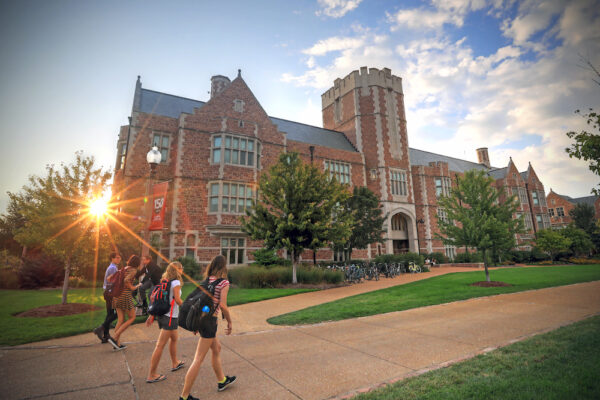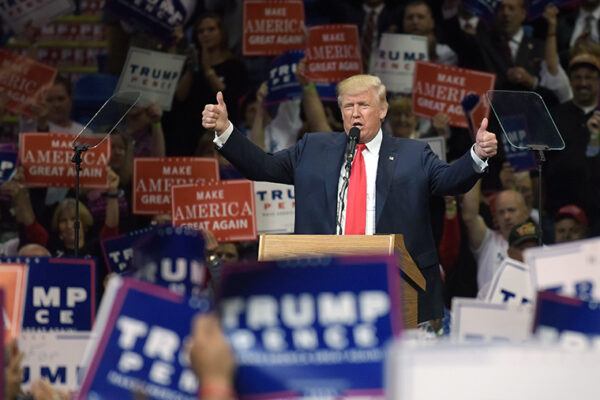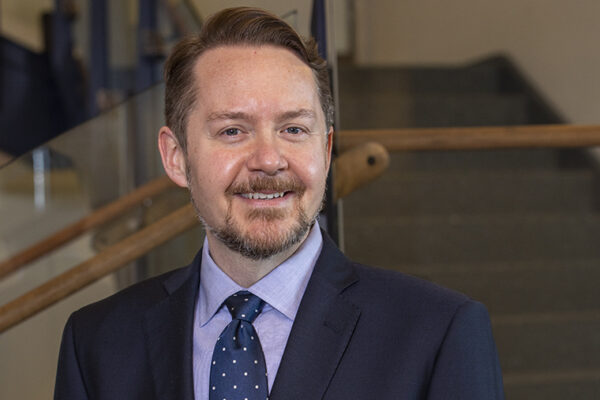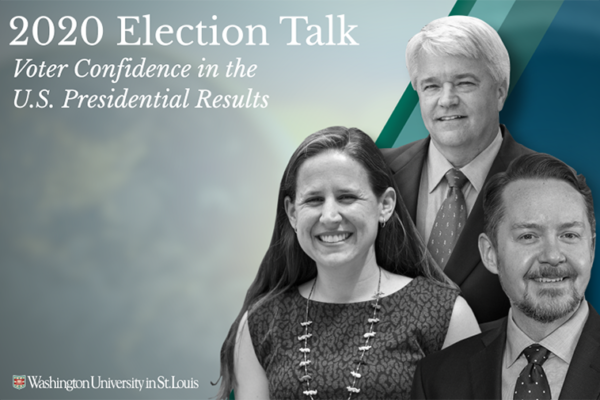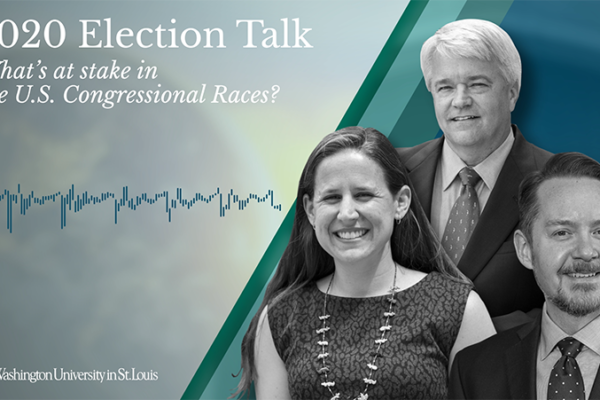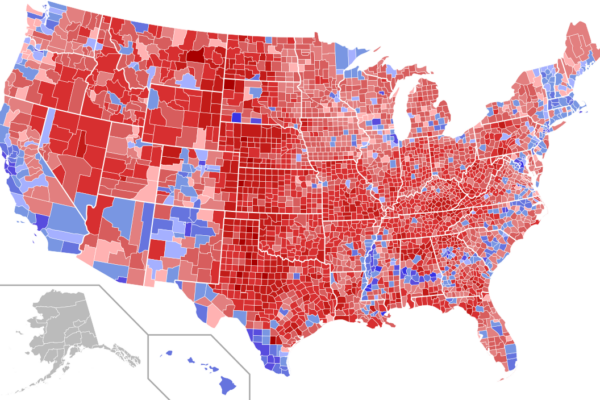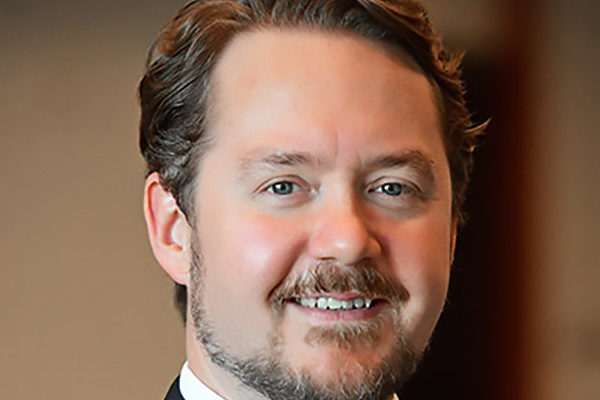Reeves teaches on American elections and voting behavior, the American presidency and executive branch politics. His 2015 book, The Particularistic President: Executive Branch Politics and Political Inequality, examines how local accountability combined with the institutions of presidential elections causes presidents to disproportionately reward important constituencies with federal dollars, including the declaration of disaster relief.
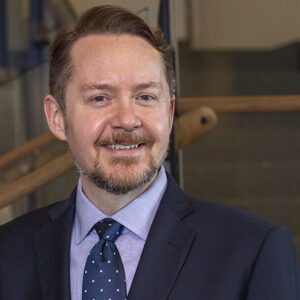
Andrew Reeves
Professor of Political Science
Contact Information
- Phone: 935-8427
- Email: reeves@wustl.edu
- Website: Website
Media Contact
In the media
Trump treats laws as obstacles, not limits − and the only real check on his rule-breaking can come from political pressure
The legal fights unfolding today are serious and must be watched closely. But Trump is not focused on the courts. He is focused on politics – on how far he can go, and whether anyone will make him stop, writes Andrew Reeves.
Trump seeks to boost presidential bid in Hurricane Helene’s wake, analysts say
Andrew Reeves, professor of political science
Was crime as bad as it was portrayed ahead of the midterm elections?
Andrew Reeves, professor of political science
For Republican governors, all economic success is local
Andrew Reeves, professor of political science
Biden’s Supreme Court commission probably won’t sway public opinion
By creating a bipartisan panel of experts, Biden likely hopes to temper the politicization surrounding the debate and confer credibility on reforms he might pursue. However, once the time to push policy change arrives, Biden might find that public support for his reforms would have been the same had he not convened it, writes political science associate professor Andrew Reeves.
Texas’s Disaster Is Over. The Fallout Is Just Beginning.
Andrew Reeves, associate professor of political science
Trump’s Key 2020 States Reel Under Twin Blows of Virus, Job Loss
Andrew Reeves, associate professor of political science
The Economy Is Collapsing. So Are Trump’s Reelection Chances.
Andrew Reeves, associate professor of political science
This pandemic is a test for leaders. Voters do the grading
Andrew Reeves, associate professor of political science
This pandemic is a test for leaders. Voters do the grading.
When disaster strikes, citizens are fearful, and some will blame elected officials for things beyond their control, writes Andrew Reeves. But the lens of accountability is also sharpened. Partisanship will not protect our families or our livelihoods.
If Trump took responsibility for coronavirus missteps, it might actually help him
Andrew Reeves, associate professor of political science
If Trump took responsibility for coronavirus missteps, it might actually help him
Our research finds that leaders who claim the blame for their governments’ performance when crises strike also can reap rewards, writes Andrew Reeves.
Counties that voted for the president get more in disaster relief
Andrew Reeves, associate professor of political science
Donald Trump’s lukewarm response to Puerto Rico was pretty predictable. Here’s why.
Andrew Reeves, associate professor of political science
Mixing politics and hurricanes? Trump might want to tread carefully.
Andrew Reeves, associate professor of political science
Playing Games With a Disaster
Andrew Reeves, associate professor of political science
Stories
WashU’s Weidenbaum Center joins Harvard’s peer pre-review consortium
A new partnership between the Weidenbaum Center and Harvard University will give social scientists at Washington University the opportunity to receive constructive, anonymous feedback on their research at any stage. The program aims to improve scholarship and speed its publication.
Partisanship, the economy and presidential accountability
New Arts & Sciences research shows that voters are surprisingly objective in how they assess the economy. Voters will actually hold the president accountable for the state of the world, Andrew Reeves said.
Executive orders come ‘at great cost’
Like other modern presidents, executive orders may be the only path forward for Biden to deliver on his policy agenda, however these powers come at a great cost, according to Andrew Reeves, associate professor of political science iat Washington University in St. Louis.
2020 election talk: Voter confidence in U.S. presidential results
Recently, Washington University in St. Louis political experts Steven Smith, Betsy Sinclair and Andrew Reeves sat down to discuss the reliability of the 2020 polls, as well as election integrity and voter confidence in the election outcome.
2020 election talk: Congressional races
Three political science experts at Washington University in St. Louis discuss the battle for control of the U.S. Senate and House. This roundtable discussion is the first of a two-part 2020 election series aimed to help listeners better understand the news, polls and issues in this year’s election.
This pandemic is a test for leaders. Voters do the grading.
When disaster strikes, citizens are fearful, and some will blame elected officials for things beyond their control. But the lens of accountability is also sharpened. Partisanship will not protect our families or our livelihoods.
If Trump took responsibility for coronavirus missteps, it might actually help him
In one of the United States’ national myths, George Washington accepts responsibility for having chopped down a cherry tree — a story that’s held up as a sign of how deeply honorable our founding president was. Our research finds that leaders who claim the blame for their governments’ performance when crises strike also can reap rewards.
The divide between us: Urban-rural political differences rooted in geography
The divide between urban and rural voters in the United States is nothing new, but its cause has been less clear. A new study by Washington University in St. Louis political scientists finds that it isn’t personal profiles, but rather proximity to bigger cities that drives the political divide.
Donald Trump’s lukewarm response to Puerto Rico was pretty predictable. Here’s why.
Many have criticized the Trump administration for responding slowly to Puerto Rico’s devastation from Hurricane Maria. Critics note that Trump has devoted more tweets to the NFL controversy than to Puerto Rico and its 3.4 million residents. What explains the Trump administration’s lukewarm reaction?
